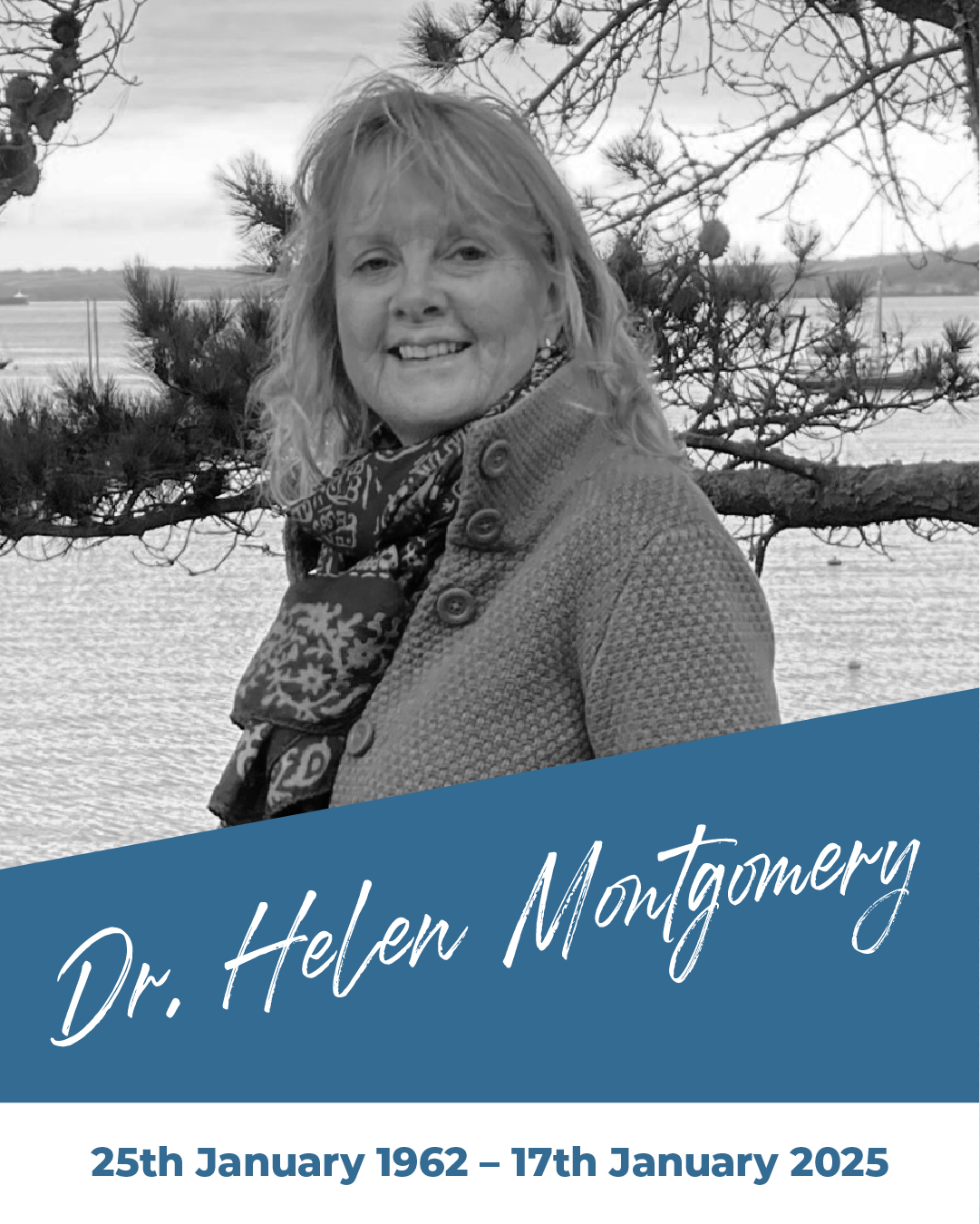Dr. Helen Montgomery Passing

Helen led the Centre’s renowned sexual health service with distinction for over 15 years from 2003. She was responsible for managing the service, including setting clinical standards, and delivering clinical sessions. She was a highly respected and valued colleague. When I appointed her, I was very concerned as to whether the service was meeting new and challenging expectations by the NHS for young people’s sexual health services. Helen transformed the service according to these expectations. The achievement of this transformation was rewarded in the outstanding assessments the service received following Care Quality Commission inspections.
She was a thoughtful and caring clinician who was empathetic and concerned about the emotional needs of her patients. The feedback of their experience of the Centre inevitably referenced the wonderful care and attention they received from Helen. Indeed, I often heard from our reception staff how young people would ask to see the ‘blond lady’. Quite a few Camden and Islington users of the sexual health service saw Helen over many years spanning their teenage years until they were young adults and, to their disappointment, had to be discharged because they had turned 21 and had therefore reached the age limit for the service.
Under Helen’s leadership, the demand for the sexual health service increased enormously in terms of the number of young people seen. The variety of services offered including for example outreach work in local schools and colleges also greatly expanded. In partnership with other NHS young people’s sexual health services and Brook, we successfully bid for tenders. The increase in demand put pressure on the service’s ethos which was to ensure that the young person had sufficient time to talk about emotional and personal issues that might be troubling them as well as having direct clinical needs addressed such as contraception and sexual health concerns. Helen ensured that patients’ psychosocial needs continued to be addressed by clinical and front-line staff. A striking example of her commitment to the emotional welfare of the users of the service occurred when a visit by a government minister was proposed by civil servants at Department of Health who considered the Centre a model for delivering sexual and mental health services for young people. In my excitement to promote the Centre, I agreed, without consulting Helen, that we would ask some young people to meet the minister with the press in attendance. Unlike me, Helen was alive to how confidentiality for these young people would be compromised and in no uncertain terms put me in my place: she was happy for them to meet the minister but not in the presence of the press. This typified Helen’s professionalism and her sensitivity to protecting young people’s need for confidentiality considering the vulnerabilities they might have around sexual health issues. Eventually Helen stepped down. She was by now commuting from Southend-on- Sea where she lived with her partner David and where she also worked in General Practice. Understandably, she decided that the commute to London and the responsibility for running the service had become too much for her.
Those of us who knew Helen were shocked and distraught to learn that she was suffering from a serious, life-threatening illness. She was always so vibrant and had a love of life and people. This optimism continued to be evident, for example when she attended the fundraising event hosted by Grace Campbell, despite her deteriorating condition. She is a great loss, and our heart goes out to David, her partner, and Helen’s family.
Geoffrey Baruch 31st January 2025